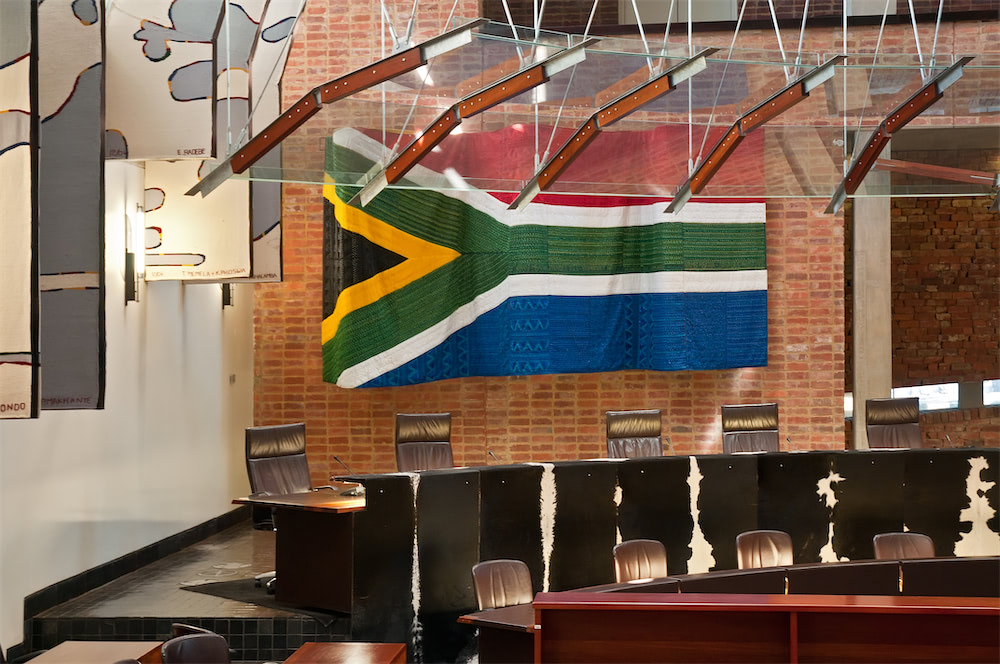

Unraveling the Mysteries of Diplomatic Immunity: What It Means
Immunity. It has a nice ring to it doesn’t it?
In the Cambridge Dictionary under Law, immunity means –
“official protection from legal action, for example, not being judged in a court or punished for a crime”.
And for most of us mere mortals, having immunity sounds like a pretty good advantage to have in our back pockets. The truth is, who do we really know that has it?
The only scenario that comes to mind usually stems from a movie. Picture this - one criminal offers to give evidence to the FBI that will secure the arrest of another (more important, mob boss) criminal. It usually happens that the divulging criminal has negotiated immunity in exchange for compelling information of a crime that could potentially put a mob boss away for life. Sounds like a pretty familiar scenario in many movies that have graced the silver screens over the years.
But where does immunity – in the real sense of the word – ever apply to your average Joe on the street?
The answer here, quite simply, is - it doesn’t.
Apologies for getting hopes up.
But in order to claim that you have any form of immunity, you have to fall into the very specific category of diplomat. Ever heard of someone saying they have “diplomatic immunity”? Well, that’s what we’re talking about.
What is diplomatic immunity?
According to the Cornell Law School, diplomatic immunity means –
“Diplomatic immunity is a status granted to a diplomat that exempts them from the laws of a foreign jurisdiction. It must be noted that immunity is a privilege of the state that a diplomatic agent represents. As such, a person cannot allege breach of immunity if the sending state does not contest a violation.
The Vienna Convention on Diplomatic Relations (1961), which most countries have ratified, offers diplomats acting as officials of state almost total protection from subjection to criminal, administrative, and civil laws belonging to the country in which the diplomatic mission is located. Diplomats assigned to missions located in foreign countries remain subject to the laws of their home countries. The diplomat's country of origin has prerogative over whether or not a host country may prosecute a diplomat under its (i.e. 'foreign') laws.”
While South Africa is not a signatory to The Vienna Convention on Diplomatic Relations (1961)(“VCDR”), the VCDR would still have applicability in South Africa due to the existence of the Diplomatic Immunities and Privileges Act 37 of 2001 (the “Act”), specifically set out as follows –
“(x) “the Conventions” means the Convention on the Privileges and Immunities 30 of the United Nations, 1946, the Convention on the Privileges and Immunities of the Specialised Agencies, 1947, the Vienna Convention on Diplomatic Relations, 1961, and the Vienna Convention on Consular Relations, 1963;
2 (1) Subject to the provisions of this Act, the Conventions have the force of law in the Republic.
3(1) The Vienna Convention on Diplomatic Relations, 1961, applies to all diplomatic missions and members of such missions in the Republic.
(2) The Vienna Convention on Consular Relations, 1963, applies to all consular posts 5 diplomatic missions and members of such missions in the Republic”.
In fact, at Section 15(1) of the Act -
“Offences and penalties
15(1) Any person who wilfully or without the exercise of reasonable care issues, obtains or executes any legal process against a person who enjoys immunity under this Act or in terms of the Conventions, whether as party, attorney or officer concerned with issuing or executing such process, is guilty of an offence.
(2) Any person who contravenes subsection (1) or who wilfully or without the exercise of reasonable care commits any other offence which has the effect of infringing the inviolability of any person contemplated in subjection (l), or of his or her property or of the premises occupied by him or her, is liable on conviction to a fine or to imprisonment for a period not exceeding three years or to both a fine and such imprisonment”.
By the existence of those Sections alone, it’s easy to see how the VCDR applies in South Africa. Armed with this cursory knowledge, lets delve a little deeper into what diplomatic immunity means within the confines of South Africa.
What does diplomatic immunity mean – practically speaking?
To begin with and as set out by the De Rebus –
“The VCDR provides a complete framework for the establishment, maintenance, and termination of diplomatic relations. Moreover, it not only codifies pre-existing principles of customary international law relating to diplomatic immunity but resolves points on which differences among states had previously meant that there was insufficient consensus to create a rule of customary international law. The Preamble of the VCDR also states that the purpose of diplomatic immunity is to ‘ensure the efficient performance of the functions of diplomatic missions as representing States.’ Its main aim is to shield diplomats from actions interfering with the performance of their official duties in the receiving state (refer to the fourth recital of the VCDR)”.
To sum this up, the VCDR and by extension (and incorporation) the Act, sets out to prevent legal action being taken against diplomats that may hinder the performance of their official duties. This is more specifically set out in Article 22, 29 to 40 of the VCDR. Article 29 to 32 specifically set out as follows –
“Article 29 The person of a diplomatic agent shall be inviolable. He shall not be liable to any form of arrest or detention. The receiving State shall treat him with due respect and shall take all appropriate steps to prevent any attack on his person, freedom, or dignity.
Article 30(1) The private residence of a diplomatic agent shall enjoy the same inviolability and protection as the premises of the mission.
30(2) His papers, correspondence and, except as provided in paragraph 3 of article 31, his property, shall likewise enjoy inviolability.
Article 31(1)(A) diplomatic agent shall enjoy immunity from the criminal jurisdiction of the receiving State. He shall also enjoy immunity from its civil and administrative jurisdiction, except in the case of: (a) A real action relating to private immovable property situated in the territory of the receiving State, unless he holds it on behalf of the sending State for the purposes of the mission; (b) An action relating to succession in which the diplomatic agent is involved as executor, administrator, heir or legatee as a private person and not on behalf of the sending State; (c) An action relating to any professional or commercial activity exercised by the diplomatic agent in the receiving State outside his official functions.
31(2) A diplomatic agent is not obliged to give evidence as a witness.
(3) No measures of execution may be taken in respect of a diplomatic agent except in the cases coming under subparagraphs (a), (b) and (c) of paragraph 1 of this article, and provided that the measures concerned can be taken without infringing the inviolability of his person or of his residence.
(4) The immunity of a diplomatic agent from the jurisdiction of the receiving State does not exempt him from the jurisdiction of the sending State.
Article 32(1) The immunity from jurisdiction of diplomatic agents and of persons enjoying immunity under article 37 may be waived by the sending State.
(2) Waiver must always be express.”
The takeaway here (and as set out by De Rebus) –
“Thus, art 31.1 confers immunity on currently serving diplomatic agents in respect of both private and official acts, subject to specific exceptions for three designated categories of private acts (see art 31.1(a) to (c)). Diplomatic agents enjoy the following immunity –
o personal inviolability (art 29).
o inviolability of their official residence (art 22.1 and 30.1);
o inviolability of their papers, correspondence, and property (art 30.2);
o immunity from the criminal, civil and administrative jurisdiction of the receiving state (art 31.1); and
o non-compellable witness (art 31.2).
As a result, the representatives of the receiving state cannot arrest or detain diplomatic agents and their residences, property or persons are immune from search, requisition, attachment, or execution due to their personal inviolability. A summons or warrant cannot be served on them personally, nor on their residences, or the mission”.
Diplomatic agents are afforded the greatest level protection. Why, you may ask. Because if a diplomatic agent becomes a party to either a criminal or civil action, those proceedings may impede the functions of the diplomatic mission.
A note, diplomatic immunity does not apply should the diplomat cease to operate as such. Here, the receiving state may (should the alleged incident have occurred within the jurisdiction of the receiving state) – at the end of his/her tenure – decide to proceed with either civil or criminal proceedings.
Of interest here is the fact that at Article 37.1 of the VCDR, the diplomatic agent’s family will enjoy the same immunity as the diplomatic agent –
“Article 37(1) The members of the family of a diplomatic agent forming part of his household shall, if they are not nationals of the receiving State, enjoy the privileges and immunities specified in articles 29 to 36”.
It’s at this stage that we can surmise that a diplomat and his/her family are off limits – at least during their tenure.
Despite this immunity grated to a diplomat, they still have the duty to respect the laws and regulations of the receiving state he/she may be in. Should a diplomat contravene a law or regulation, the receiving state has the following remedies available (as set out by De Rebus) –
• “Request an official apology from the sending state by way of note verbale.
• Request the sending state to waive the offending diplomat’s immunity (s 8 of the Act, read with art 32.1 and 32.2 of VCDR or art 45 of VCCR).
• Request the sending state to recall the offending diplomat.
• Declare such diplomat undesirable or persona non grata.
• Deregister the diplomat from accreditation and request their immediate departure from its territory”.
There’s method to the madness of discussing diplomatic immunity. There is a bigger picture in mind. In our next article, we aim to discuss presidential immunity – something that is very much on the minds of people following the Trump saga (latest news releases can be read here and here as an example).
What is the situation with presidents? Are they protected by a type of “diplomatic immunity” as heads of state? Seemingly not. But what are the mechanics of this, both far afield in the US as well as on local shores? President Ramaphosa’s Phala Phala matter may spring to mind.
If this is something that interests you, watch out for our next article!
(Sources used and to whom we give thanks – Gov.za; De Rebus; Cornell Law School and Vienna Convention on Diplomatic Relations, 1961;).
If you have any questions on the information we have set out above or have a personal issue which you want to discuss with us, please don’t hesitate to contact us at NVDB Attorneys.
We are a law firm that considers honesty to be core to our business. We are a law firm that will provide you with clear advice and smart strategies - always keeping your best interests at heart!




